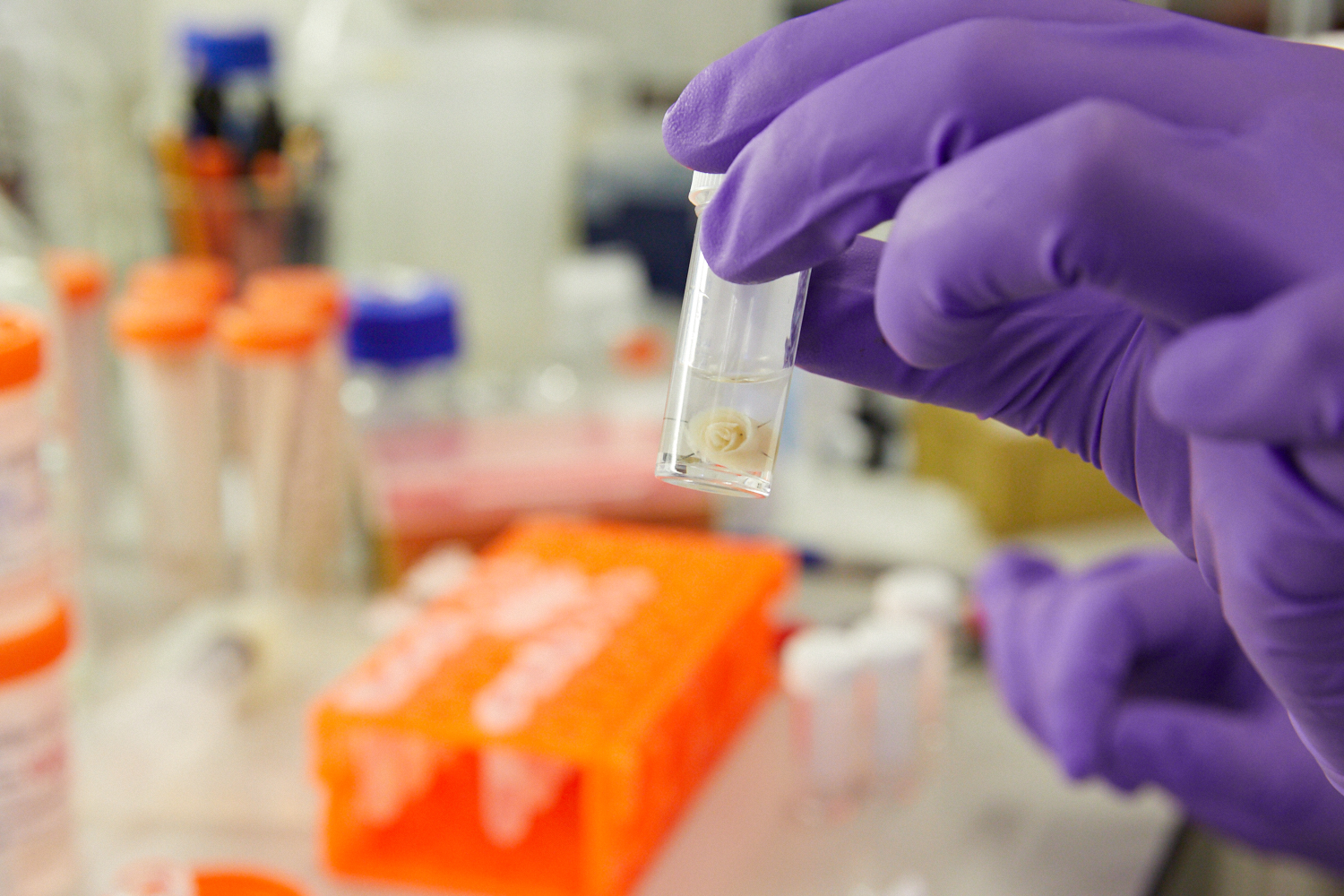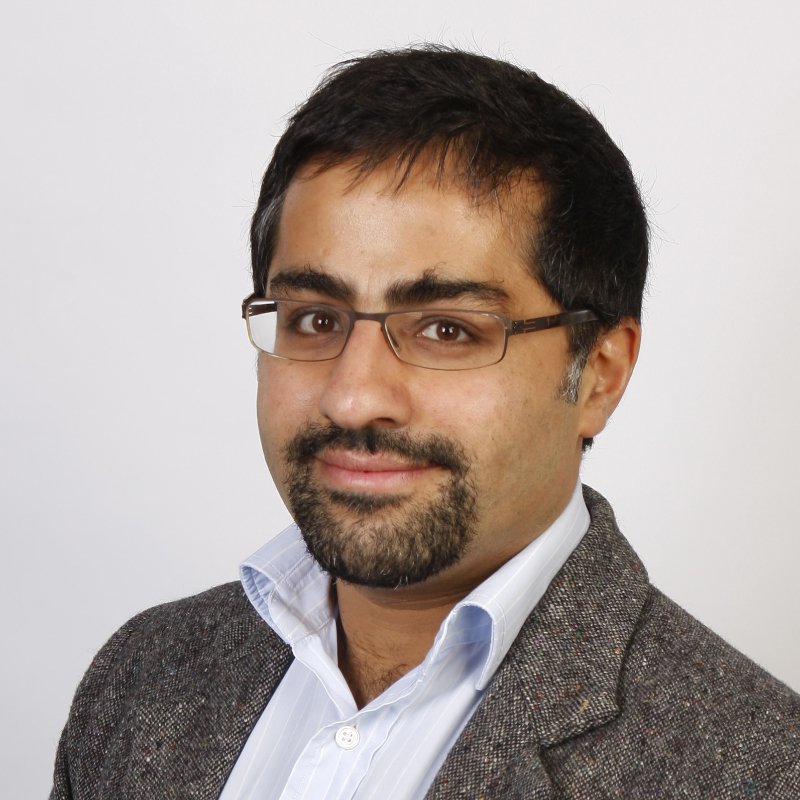
Re-programming a patient’s immune cells so that they attack cancer and creating a cell ‘atlas’ to understand how a rare skeletal muscle cancer starts are examples of five research projects to receive new Cancer Research UK–Children with Cancer UK Innovation Awards.
Co-funded by Cancer Research UK and Children with Cancer UK, five teams of scientists who are leaders in their field have been awarded up to £1 million each to delve into the biology of children’s and young people’s cancers, with the hope of finding new ways to prevent and treat these complex cancers.
Other funded teams will look at: why some children and young people are at greater risk of developing cancer; why chromosome duplication happens in the cells of children with cancer; and improving outcomes for children whose blood cancer comes back.
Funding for these projects comes in at £4.3 million in total and signifies a much-needed turbo-boost for research into children’s and young people’s cancer, Michelle Mitchell, chief executive of Cancer Research UK, said today.
Thanks in large part to the work of Cancer Research UK and Children with Cancer UK, more children and young people in the UK are surviving cancer than ever before.
But despite improvements in overall survival over the last 40 years, cancer remains the leading cause of death by disease in children and young people (aged 1-24) in the UK. Some of these types of cancer continue to have low survival rates and many who survive do so with serious long-term side effects.
Part of the issue is that cancer in children and young people is different to cancer in adults, from the types of cancer, to the impact of treatment and long-term side effects survivors often experience.
Researchers also still don’t know enough about why children get cancer in the first place, and the underlying biology of these cancers is extremely complex.
The Cancer Research UK–Children with Cancer UK Innovation Awards will allow researchers to gain a better understanding of cancer in children, which they hope will lead to the development of better and less toxic treatments.
To help answer these questions, the five funded teams will be looking at:
- Understanding why some children inherit a greater risk of developing cancer.
Professor Richard Houlston at The Institute of Cancer Research, London, will lead a team to identify previously unknown inherited gene mutations that increase a child’s chances of getting cancer. This work could determine new ways to monitor children with these mutations, allowing doctors to diagnose cancer sooner and to better tailor each child’s treatment and care.
- Understanding why chromosome duplication occurs in the cells of children with cancer, and if it can be used when designing new treatments. Professors Christine Harrison, Jonathan Higgins and Steve Clifford at Newcastle University will lead a team investigating a phenomenon where cancer cells of children and young people gain chromosomes, known as aneuploidy. This is found in many types of childhood cancers, and by understanding why this happens, they hope to find new ways to prevent and treat them.
- Developing a new way to treat a type of acute lymphoblastic leukaemia (ALL) using the immune system. A form of ALL known as Mixed Lineage Leukaemia (MLL) gene rearranged infant ALL (MLLr-iALL) has poor survival. CAR T-cell therapy, which uses modified versions of a patient’s T cells to attack their cancer, is often used to treat leukaemia. But using this potentially life-saving treatment in very young patients is limited. This is because it’s very difficult to obtain T cells from them, as these patients have already gone through intensive chemotherapy and are often immunocompromised. Dr Anindita Roy at the University of Oxford, and Professor Anastasios Karadimitris of Imperial College London, plan to test a new way of treating the disease by adapting this therapy to use a different type of immune cell called invariant natural killer T (iNKT) cells that can be taken ‘off the shelf’. They hope this CAR-iNKT cell therapy will be a more effective way of treating these very young patients.
- Improving outcomes for children and young people whose ALL relapses after treatment. Survival for children and young people with ALL is high, but the outlook is poor if treatment doesn’t work and the cancer comes back. Professor Marc Mansour, Dr David O’Connor, Dr Jack Bartram and Professor Owen Williams of University College London and Great Ormond Street Hospital for Children are investigating the causes behind ALL coming back, which has been historically difficult because relapse is rare. By establishing a nationwide study, the team hope to develop new ways of treating relapsed patients and predicting which patients will respond to each therapy.
- Identifying new targets to treat rhabdomyosarcoma (RMS), a skeletal muscle cancer, by investigating its foetal origins. The biology of RMS is largely unexplored, but is thought to originate from cells in the foetus that develop incorrectly. Some of these cells persist in children with RMS when usually they wouldn’t. Dr Sam Behjati at the Wellcome Sanger Institute and member of our Paediatric Cancer Programme, and Dr Karin Straathof at University College London, want to understand why this happens by building a cell ‘atlas’ – a complete guide to the cells that form RMS. They hope that understanding how RMS develops will help bring to light new targets for treatment.
Dr Behjati said: “Although treatments have dramatically improved over the past few decades, children continue to suffer from rhabdomyosarcoma, with very few novel treatment approaches in sight. Moreover, survivors often experience lifelong adverse effects from treatment.
Michelle Mitchell, chief executive of Cancer Research UK, said: “We’ve listened to both parents and researchers and their concerns about lack of progress for children’s and young people’s cancers. That’s why we made a commitment to change this through our Cancer Research UK for Children & Young People research strategy.
“We are thrilled to be working with Children with Cancer UK in co-funding the Innovation Awards. This funding represents the dawning of a new age of investment into cancers that affect children and young people, and the awards are a key part of our research strategy.
“We hope this funding boost will build momentum in the field to improve our understanding of these types of cancer and ultimately lead to fewer children and young people losing their lives to this disease.”
Dr Nick Goulden, Trustee of Children with Cancer UK said: “Scientific research, largely funded by charities, has underpinned the massive improvement in survival for children and young people with cancer seen over the last 30 years. This exciting collaboration allows Children with Cancer UK to maximise the impact of this precious funding toward our ultimate goal of ensuring that every child and young adult with cancer is cured.”
Read more about these projects in the Cancer Research UK science blog.
















